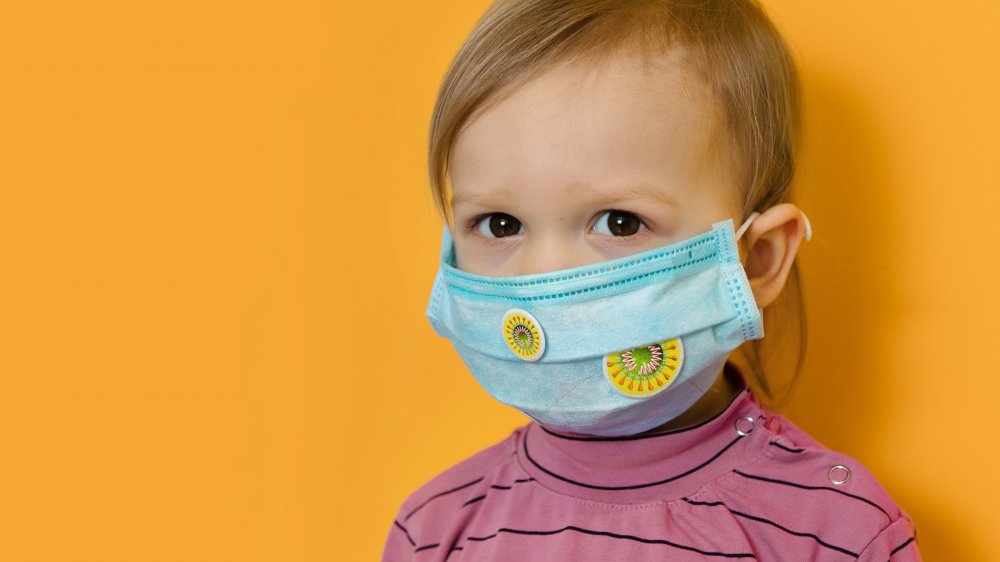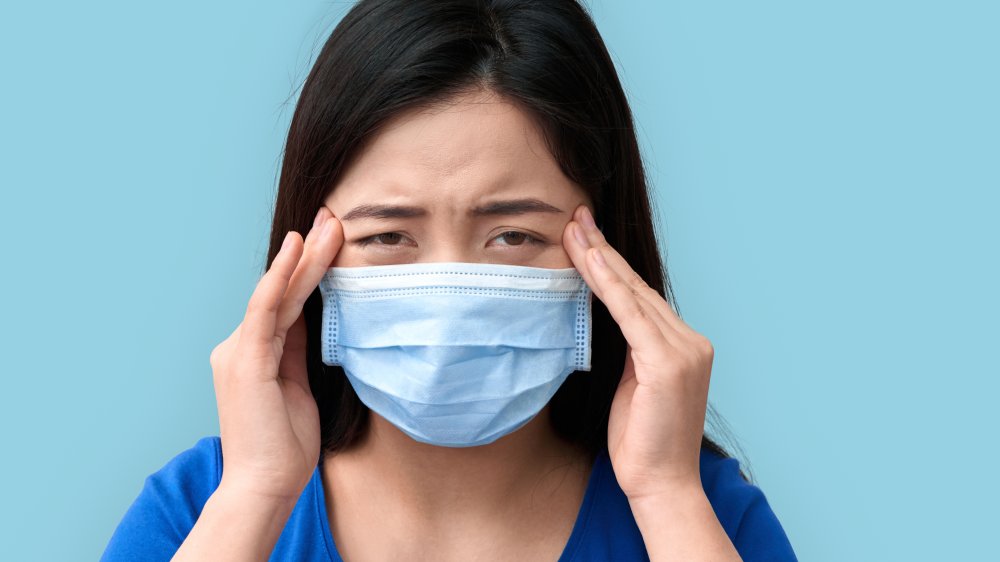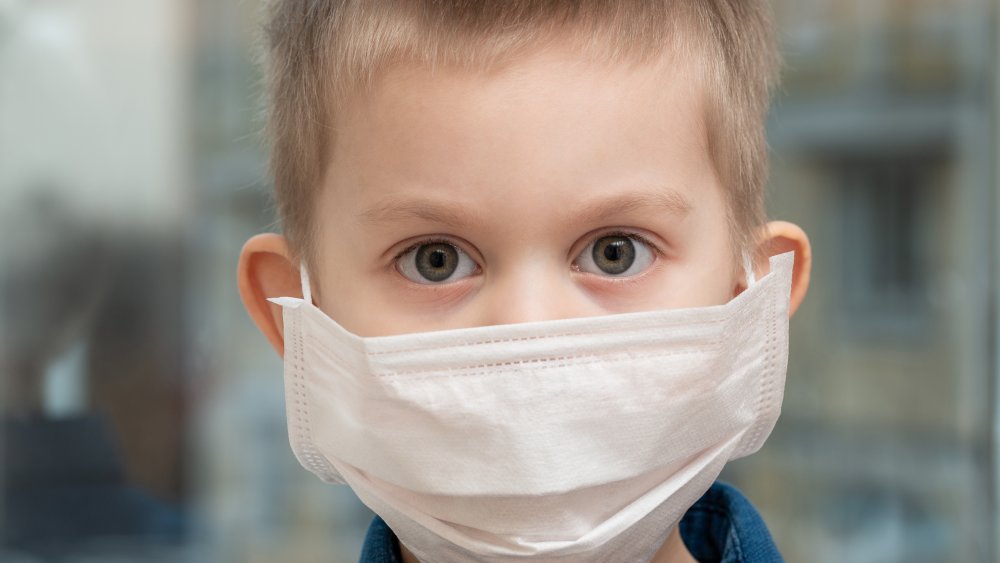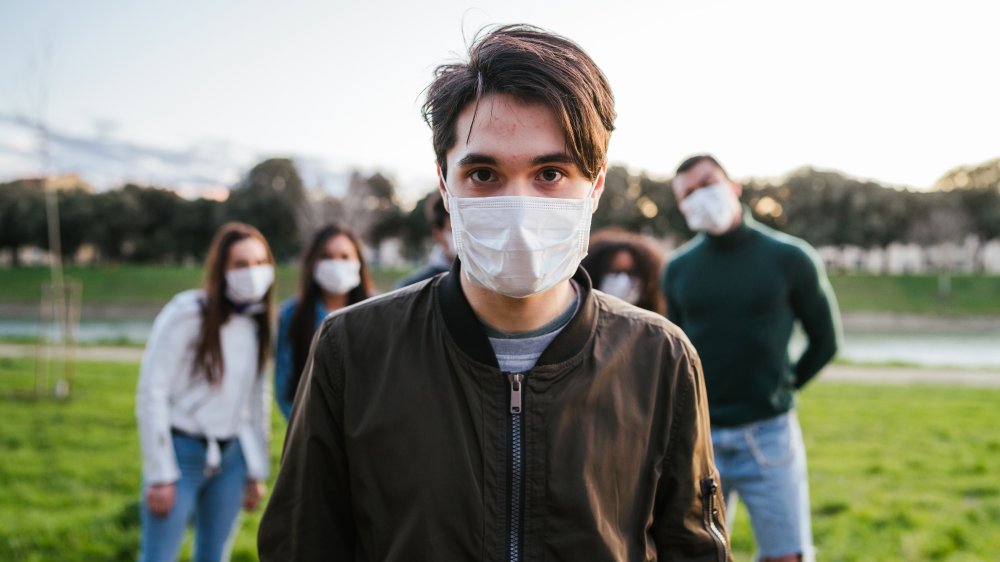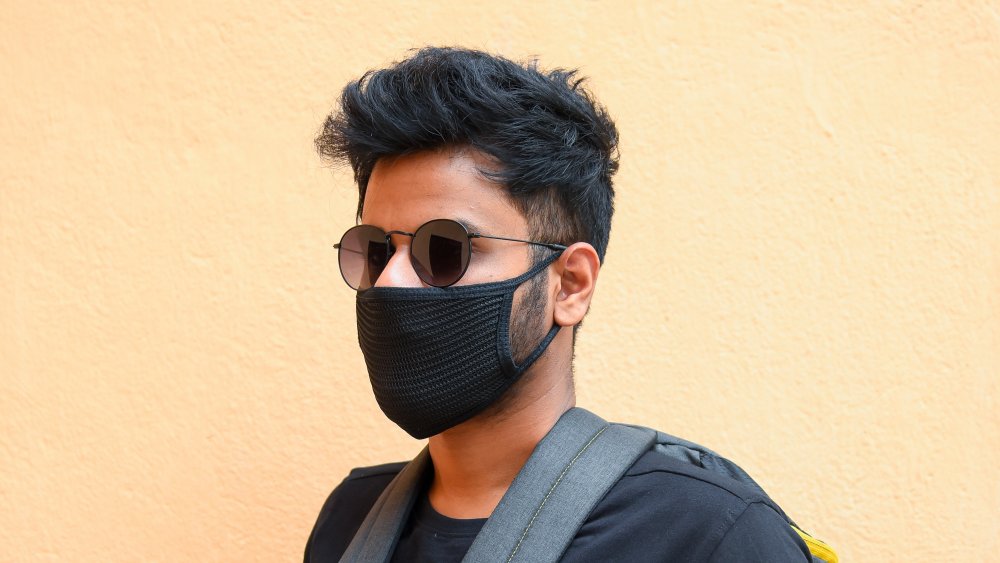How Dangerous Is The Coronavirus For Young People?
The COVID-19 coronavirus is an increasingly worrisome disease for many countries. Sure, the rich might have access to private jets and other means of lowering the risk of contagion — at least for the moment, seeing as the Dow is crashing thanks to coronavirus-fueled fears, amid other concerns — but it looks like everybody else just has to power through and follow the World Health Organization's protective measures.
Still, while everyone in the world is busy washing their collective hands for twenty seconds, maintaining a healthy distance from other people, covering coughs and sneezes, and trying one's level best to avoid touching faces, you can't help but wonder: How is the part of the population that touches its face all the time, and gets its hands on everything, going to survive this whole ordeal? In other words, exactly how dangerous is the coronavirus for children ... and for that matter, young people in general?
Coronavirus doesn't seem to be all that deadly for young people
According to the World Health Organization's advice for public, the coronavirus does affect people of all ages, and they urge everyone to take precautions to avoid infection. However, the WHO does note that older people and folks with medical conditions such as diabetes, heart disease and asthma are more likely to get "severely ill." Dying of the virus is also fairly unlikely if you're young and have no underlying conditions, according to data collected by Robert Cuffe, the Head of Statistics for the BBC. On March 4, 2020, he presented a graphic from the Chinese Center for Disease Control & Prevention. It indicated that as of February 18th, 2020, there had been no deaths of patients under nine years old, and people under 30 had the lowest death rates.
So, while the situation is obviously ongoing, and new information might trickle in at any moment, current figures seem to tell us that kids and young people are the least likely to die from the coronavirus. They can still totally get it and spread it around, though, so please, please remember to wash those hands.
Coronavirus for children
Now, "young people" means different things to different people, and if you're old enough, even those pesky kids in their sixties fit in that bracket. With that in mind, it's worth examining some of the young and young-ish age groups, to see how coronavirus treats them. First up, children! While the CDC classifies kids under "higher risk and special populations," they also point out that there's no evidence that they're "more susceptible" than any other age group. In fact, available data from previous coronavirus outbreaks, SARS and MERS, indicates that children are relatively unlikely to be infected.
While the CDC says that the data currently available is quite limited, it does appear that children "have generally presented with mild symptoms," which are not unlike a common cold. However, there has been one reported case that involved diarrhea and vomiting, and there could potentially be even more "severe complications" for some other children. However, these seem to be quite rare.
Those coronavirus teens
If you look at the data compiled by the BBC, you'll see that teenagers (and, for that matter, anyone between 10 and 19 years old) are relatively safe when it comes to coronavirus deaths. Maybe that's why the media seems to concentrate more on the ways teens can handle the situation mentally. Both Donna De La Cruz and Lisa Damour of the New York Times have written articles about the way parents should approach the coronavirus situation with their tweens and teens. De La Cruz points out that the youngsters might "develop anxiety" over the flood of information about the virus, while Damour also writes that this might be an issue, on account of teenagers' tendency to "experience emotions especially intensely."
Meanwhile, Business Insider reported on March 11th that teens themselves appear to be dealing with coronavirus with ... the time-tested dual attack of dark comedy and memes. Hey, at least they're going for the right kind of viral.
Coronavirus and young adults
On the other hand, what if you're in your twenties? Do you still count as young? More importantly, does coronavirus still consider you to be young enough to fit in that desirable "yeah, this one'll have the mild version" bracket?
Fortunately for twenty-somethings all over, the BBC's data indicates that this is the case. While people younger than the age of 30 dying of coronavirus isn't completely unheard of, the available data from China indicates that out of 4,500 cases of under-30s with COVID-19, only eight of them ended in death. That would be a .178 percent death rate for ages under 30, which is obviously way more than the ideal zero percent ... but still a lot less worrisome than even the lowest estimate of COVID-19's worldwide mortality rate, which Business Insider says could be somewhere in the range of around 3.4 percent, as of March 12th.
